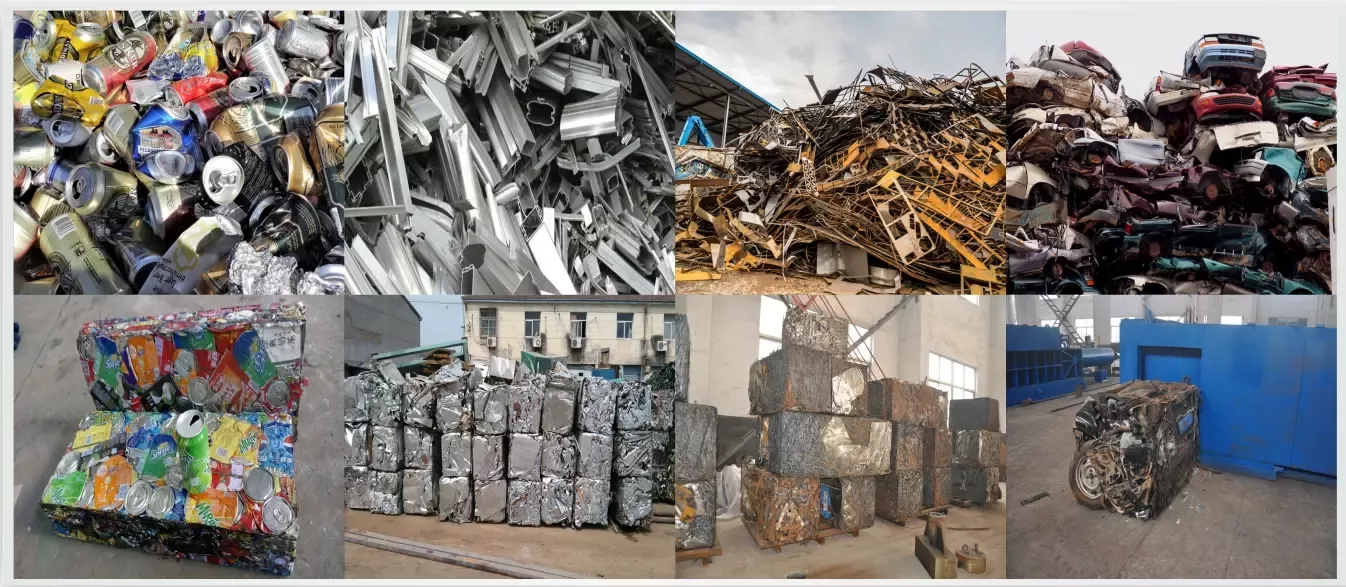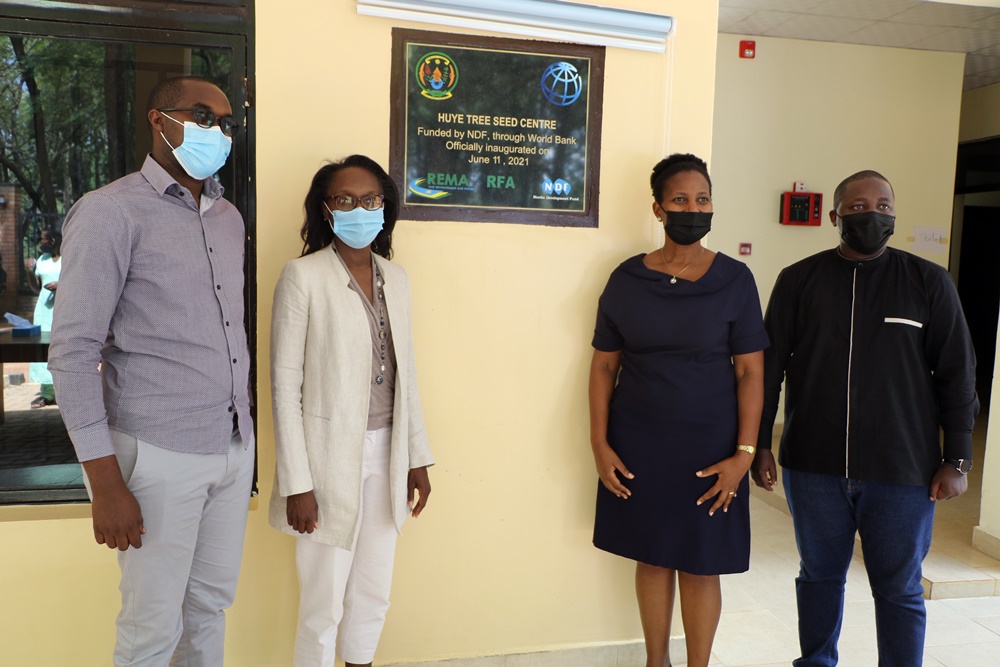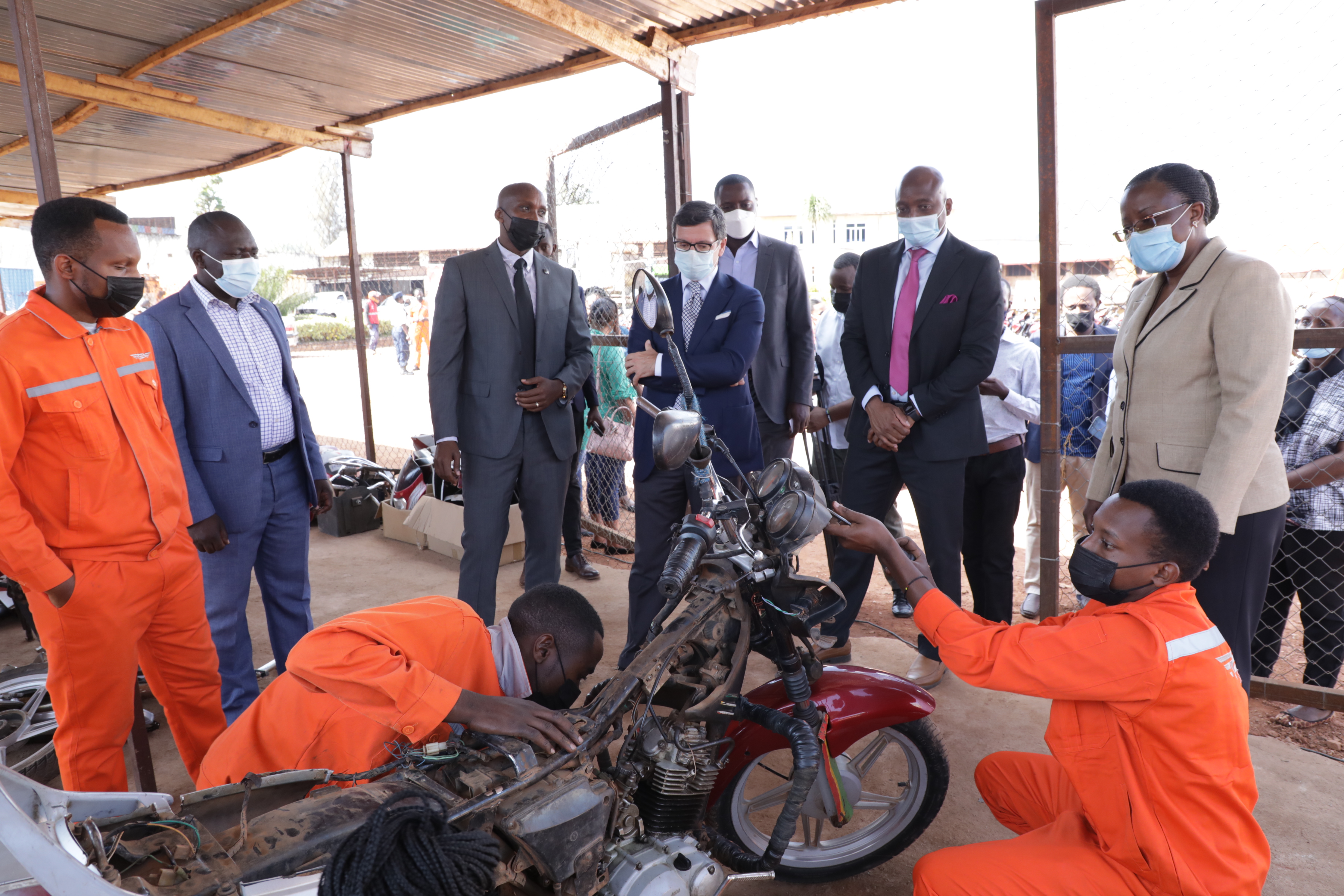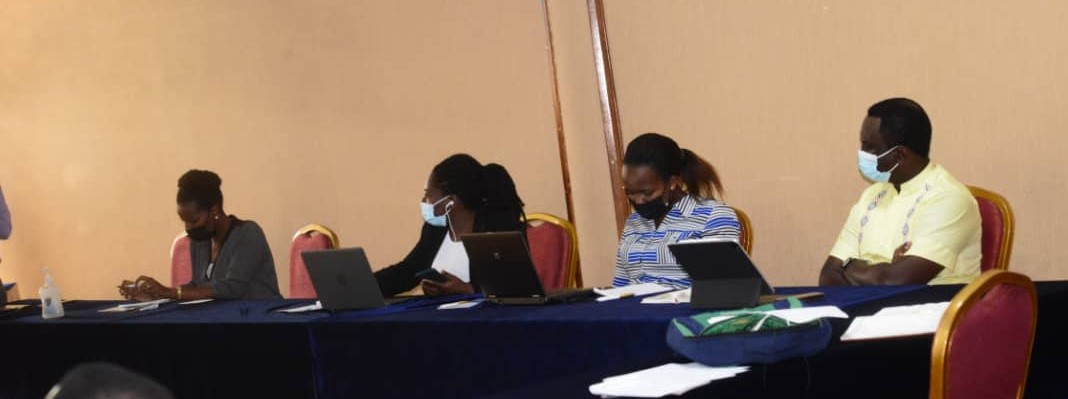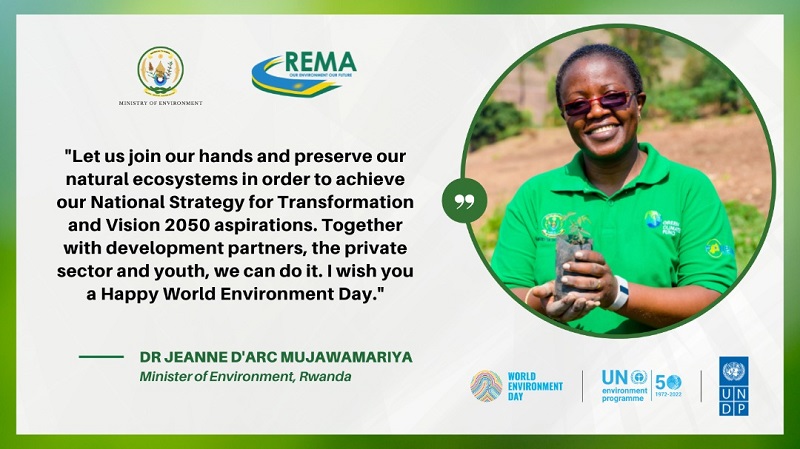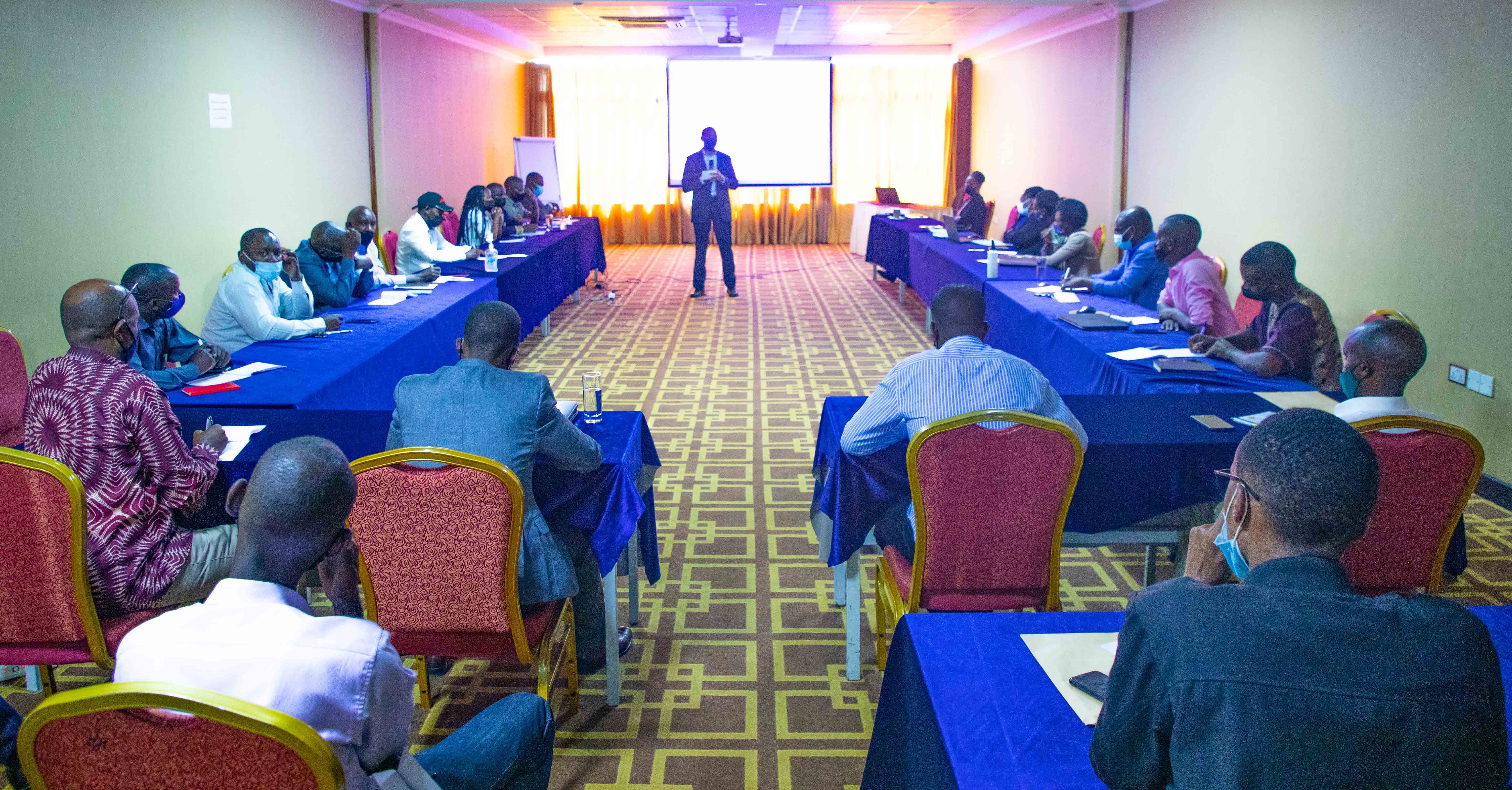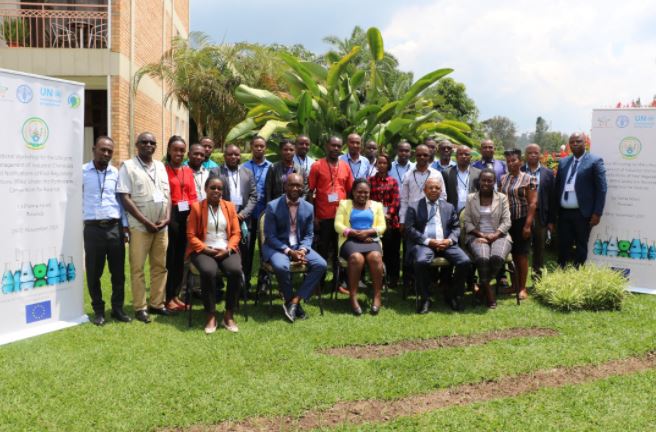
Stakeholders trained on Rotterdam Convention
Members of Chemical Based Conventions National Steering Committee from government institutions, private sector and non-governmental organizations, that have role in the implementation of Rotterdam Convention were trained in the national follow-up workshop for the life cycle management of chemicals and Notifications of Final Regulatory Actions (FRAs) under Rotterdam Convention. The workshop running from November 9 to November 12 was co-organized by REMA and Rotterdam convention secretariat in partnership with UN Environment Programme, UN Food and Agriculture Organization, and European Union.
This workshop which was financed by European Union is a follow-up to the “Sub-Regional workshop on the life cycle management of industrial chemicals under the Rotterdam Convention” that took place in Nairobi, Kenya 2019.
The key objectives of the follow-up workshop were to facilitate the strengthening of the capacity of Parties to assess and manage risks, prepare and communicate import responses and take decisions on final regulatory actions for chemicals that are listed under the Rotterdam Convention in accordance with the prior informed consent procedure.
It also aimed to raise awareness on hazardous chemicals through the use of GHS and also facilitate the development of frameworks and implementation plans for chemicals management, provide tools and approaches for Parties to apply precaution in industrial and pesticide chemicals management.
Opening the training on behalf of REMA Director General, Racheal TUSHABE, the Director of Advocacy and Multilateral Environmental Agreements Monitoring said:
“Environment has no borders, but, it also has no voice. We are the ones to advocate for the planet and enable nature to be heard and direct the conflict in particular ways. Hence, this is an assignment for all countries around the world. We can make it by joining hands as global community through the ratification, accession of Multilateral Environmental Agreements (MEAs) and putting emphasis on their implementation as it is the core solution to save our lives and biodiversity from diverse impacts resulting from the poor management of pesticide and industrial chemicals”.
Led by the trainers James Mulolo and Thabo Moroba from the Africa Institute for the Environmentally Sound Management of Hazardous, the training looked at the main provisions of Rotterdam convention, status regarding submissions, key obligations under the convention with focus on the role of National Coordination and Cooperation for sound chemicals management, hazard, risk assessment and management and framework development for sound management of chemicals. Trainees were also explained the distinction between Rotterdam Convention, Basel Convention and Stockholm Convention.
So far, Rwanda is party to 18 MEAs, notably the Rotterdam convention on prior informed consent. For the effective implementation of Rotterdam convention, Rwanda synergized it with the Strategic Approach to the International Chemicals Management, Basel, Stockholm and Minamata Conventions.
Since the date of its Ratification, Rwanda informed the secretariat the final decision taken against the transboundary movement of different pesticide and industrial chemical under annex III. In addition to the import responses submitted, during this year, Rwanda has adopted ministerial order banning eighty-seven (87) pesticide and industrial chemicals. Henceforth, 30 of them have been submitted to the Rotterdam Secretariat through import responses as provided for by article 10 of the convention.
About Basel, Rotterdam and Stockholm Conventions
The Rotterdam Convention which was adopted in 1998 and became effective in 2004 is a multilateral treaty to promote shared responsibilities in relation to importation of hazardous chemicals.
The convention promotes open exchange of information and calls on exporters of hazardous chemicals to use proper labeling, include directions on safe handling, and inform purchasers of any known restrictions or bans.
Signatory nations can decide whether to allow or ban the importation of chemicals listed in the treaty, and exporting countries are obliged to make sure that producers within their jurisdiction comply.
Basel Convention, adopted in 1989 and entered into force in 1992, is an international treaty that was designed to reduce the movements of hazardous waste between nations.
The Basel Convention regulates the transboundary movements of hazardous wastes and other wastes.
Stockholm Convention on Persistent Organic Pollutants is an international environmental treaty, signed on 22 May 2001 in Stockholm and effective from 17 May 2004.
Topics
More posts
Hazardous waste entering the Rwandan market illegally will be returned to the country of origin – REMA warns
The Rwanda Environmental Management Authority (REMA) says that any transboundary movement of hazardous waste made without prior consent from States…
Rwanda opens Tree Seed Centres to boost supply of high-quality seeds
- New tree seed centres launch in Gatsibo and Huye districts
- Forest conservation and agroforestry to benefit from higher quality seeds
- Tree seed…
The Government of Rwanda and UNDP Rwanda Launch a Retrofit Electric Motorcycles Project
Kigali, 10 June, 2021- The Government of Rwanda in partnership with the United Nations Development Programme (UNDP) launched a project to put more…
Rwanda launches project to protect human health and the environment from the adverse effects of mercury pollution
The Rwanda Environment Management Authority (REMA), has launched the Minamata Initial Assessment (MIA) and National Action Plan (NAP) Projects.
Both…
Remarks by Minister of Environment D.r Jeanne d' Arc Mujawamariya on World Environment Day 2021
It is my pleasure to be with you today as we celebrate the World Environment Day 2021, widely celebrated on 5th June each year.
This event is the…
World Environment Day 2021: Rwandans urged to join hands and preserve natural ecosystems
Kigali, 04 June, 2021- On this 4 June, Rwanda marked the World Environment Day, the event, which brought together Government institutions, development…
Partners Discuss the Revision of Rwanda's Green Growth and Climate Resilience Strategy
Kigali, 02 May, 2021, Today, the Ministry of environment in partnership with and United Nations Development Programme in Rwanda(UNDP) hosted a High…
Abacukuzi b’amabuye y’agaciro biyemeje gukosora amakosa bakoraga atera iyangirika ry’ibidukikije
Abakora mu rwego rw’ubucukuzi bw’amabuye y’agaciro mu Rwanda bihaye umukoro wo gukosora amakosa bakoraga mu bucukuzi, biyemeza gukora umwuga wabo mu…
Speech of Permanent Secretary of Ministry of Environment on the Celebration of the International Day for Biological Diversity 31/05/2021
I am delighted to welcome you to the celebration of the International Day for Biological Diversity. This Day is normally celebrated on 22nd May with…
